The views expressed in our content reflect individual perspectives and do not represent the authoritative views of the Baha'i Faith.

On August 26, 1920, the United States certified the 19th Amendment to its Constitution, granting women the right to vote. On this day, every year since 1971, Americans observe Women’s Equality Day.
It took the women’s suffrage movement almost seventy-five years to achieve voting rights. A half-century before women could vote, a chance 1872 meeting on a train set the 19th Amendment in motion.
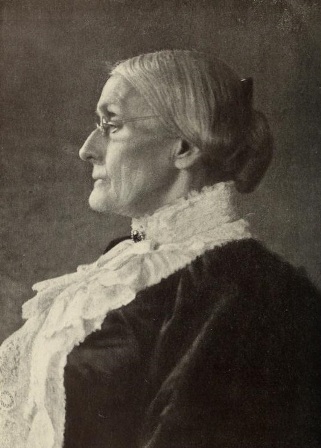
The famous suffragettes Susan B. Anthony and Elizabeth Cady Stanton had just drafted the simple, 29-word text of the Amendment: “The right of citizens of the United States to vote shall not be denied or abridged by the United States or by any State on account of sex. Congress shall have power to enforce this article by appropriate legislation.”
Then, in 1872, Susan B. Anthony met Aaron Sargent and his wife Ellen Clark Sargent on a train. Anthony’s fervent desire for a women’s suffrage movement convinced the Sargents to support the movement — Sargent subsequently became the first person to utter the word “suffrage” in the United States Congress, and Ellen Sargent later served as the secretary of the National Suffrage Association. Elected to the Senate in 1873, Sargent interceded with President Grant when Susan B. Anthony was jailed for registering to vote, and it was his effort that secured her release. In January of 1878 Senator Sargent introduced the “Anthony” bill, which would later become the 19th Amendment – and for the next 40 years it would annually be introduced unsuccessfully in Congress, until it finally passed during Woodrow Wilson’s administration in 1919.
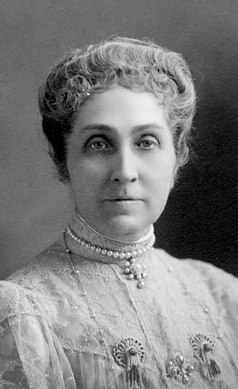
From their home in Nevada City, California, the Sargents carried on the long battle for suffrage. In 1888, when the famous abolitionist, pacifist and suffragette Julia Ward Howe (and author of The Battle Hymn of the Republic) visited California, Ellen Clark Sargent hosted the meeting in San Francisco that brought together some of the most powerful and influential women’s suffrage advocates — Phoebe Hearst, Sarah Dix Hamlin, Emma Sutro Merritt, M.D., and several others. (Hearst, one of the wealthiest American women and a strong supporter of women’s rights, would become a Baha’i a decade later, in 1898.) In that 1888 meeting the women formed the Century Club of California, often noted as the fulcrum of emerging female power in the West.
During the same period, when most religious organizations opposed or even criminalized the women’s rights movement, the Baha’i Faith taught the equality of men and women.
Abdu’l-Baha, who met with many suffragist leaders and spoke encouragingly to suffragette groups in Europe and America, clearly enunciated the Baha’i teachings on the question when he addressed a women’s suffrage meeting in New York City in 1912. He questioned, in fact, the very premise of any attitude that opposed the equality of the sexes:
Woman must be given the same opportunities as man for perfecting herself in the attainments of learning, science and arts. God has created the man and the woman equal, why should she be deprived of exercising the fullest opportunities afforded by life? Why should we ever raise the question of superiority and inferiority? In the animal kingdom the male and female enjoy suffrage and in the vegetable kingdom the plants all enjoy equal suffrage. In the human kingdom, which claims to be the realm of brotherhood and solidarity, why should we raise this question? – The Promulgation of Universal Peace, p. 167.
Baha’is believe that the great movements for freedom do not take place in a vacuum. Instead, the Baha’i teachings say that the civil rights and women’s rights movements; the various movements for justice for workers; the anti-war and anti-nuclear movements and every other mass uprising that calls for peace, justice and equality since the mid-19th Century all have their genesis in Baha’u’llah’s revelation:
Every age requires a central impetus or movement. In this age, the boundaries of terrestrial things have extended; minds have taken on a broader range of vision; realities have been unfolded and the secrets of being have been brought into the realm of visibility. What is the spirit of this age, what is its focal point? It is the establishment of Universal Peace, the establishment of the knowledge that humanity is one family. – Abdu’l-Baha, Baha’i Scriptures, p. 274.
In the Baha’i teachings, the equality of women and men forms one of the great pillars of the oneness of humanity, and Baha’is all over the world work every day to make it a reality.




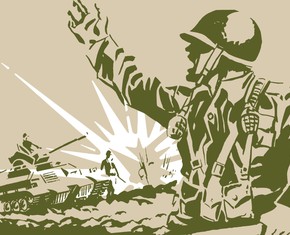
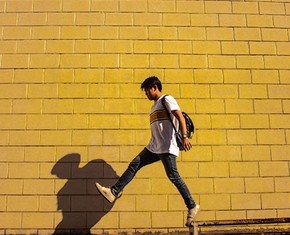
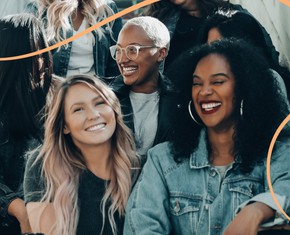









Comments
Sign in or create an account
Continue with Googleor